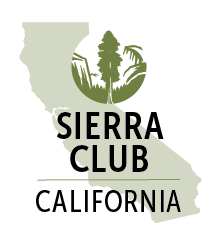
FOR IMMEDIATE RELEASE
October 17, 2024
Contact: Michael Blenner, michael.blenner@sierraclub.org
Sierra Club California Releases 2024 Legislative Report Card: Eleventh Hour Gut & Amend Bills Bring Down Scores
Sacramento, CA - Today, Sierra Club California released its annual legislative report card, which tracks the performance of legislators and the Governor on key environmental and climate bills.
The 2024 legislative session included some major challenges and successes for the environment. Despite a $46 billion budget shortfall, the legislature and the Governor passed a budget and a Climate Bond proposal that preserved funding for many important climate programs, such as the Habitat Conservation Fund and equitable building decarbonization projects. Bills advancing corporate accountability, phasing out oil & gas drilling, reducing plastic pollution, addressing exposure to pesticides and toxics, and promoting clean transportation passed the legislature and were signed by the Governor. Sierra Club California worked quickly to respond to last minute bill proposals and amendments, while also ensuring our priority bills we had been championing all year made it to the Governor’s desk.
This year, only two legislators earned 100% scores (voting with the environment on all of the scored bills in the report card), compared with 46 in 2023. The 100%ers this year are Assemblymember Alex Lee (AD 24) and Speaker Emeritus Anthony Rendon (AD 62).
Scores were driven down this year by votes for Assembly Bill 98 and Senate Bill 1420, both bills that Sierra Club California opposed. AB 98 codifies insufficient setbacks for warehouses which undermine efforts to set pollution standards to protect community and environmental health. Sierra Club California supported other efforts to develop stronger warehouse setbacks, (including AB 1000, which was also authored by Assemblymember Reyes), but AB 98 waters down those protections, and creates standards that do not adequately protect frontline communities.
SB 1420 backtracks on California’s commitment to renewable energy by streamlining permitting of combustion-based “gray” hydrogen projects and including the use of emissions-intensive feedstocks in hydrogen production. Sierra Club California supports the transition from fossil fuels to renewable energy, and cutting out processes that provide accountability and transparency to affected communities. Promoting hydrogen projects that increase reliance on harmful production methods, is a step backward for California.
“This legislative session featured significant economic and policy challenges, as well as late-session amendments to several priority bills for the environment. While Sierra Club California commends the legislators who stood firmly with the environment and community health, we’re disheartened by the political maneuvering that diverted attention away from critical climate issues,” said Bobbi Jo Chavarria, Acting Director of Sierra Club California. “The drop in perfect scores this year highlights a concerning trend: impacted communities are often shut out of the decision-making process, and important debates are being stymied. The urgency of the climate crisis demands unwavering focus and dedication to our shared goals of health, safety, resilience, and sustainability. As we look towards the 2025 legislative session, we will be working closely with Governor Newsom and the legislature to prioritize policies that genuinely protect our planet and promote environmental justice for all Californians.”
Governor Newsom received a C+ grade this year, primarily because he and the environmental community struggled to find common ground throughout the legislative session. His actions aligned with Sierra Club positions on bills 76% of the time, and we were pleased to see Newsom’s administration focus on holding Big Oil accountable and reducing plastic pollution this session. However, he continues to support environmentally destructive projects such as the Delta Tunnel and Sites Reservoir. Additionally, he ignored feedback from the environmental community and backed bills that would undermine wildfire planning and eliminate funding for renewable energy programs.
To prepare the report card, Sierra Club California staff selected a total of 10 bills in each house (11 bills total, with 9 bills scored in both houses). The bills chosen represent a broad array of important environmental justice and climate issues that Sierra Club California has prioritized throughout the year. These include oil and gas extraction, plastic and pesticide pollution, water sustainability, renewable energy, and transportation.
Legislator’s scores are determined by dividing the number of times the legislator voted with Sierra Club’s position by the total number of bills for which the legislator was present to cast a vote. Where a legislator was absent, that vote is not counted.
Further information on scoring details, as well as individual legislator’s votes and scores are noted on the scorecard, which is available on Sierra Club California’s website.
Sierra Club California is the legislative and regulatory arm of Sierra Club’s 13 local chapters in California, representing half a million members and supporters.